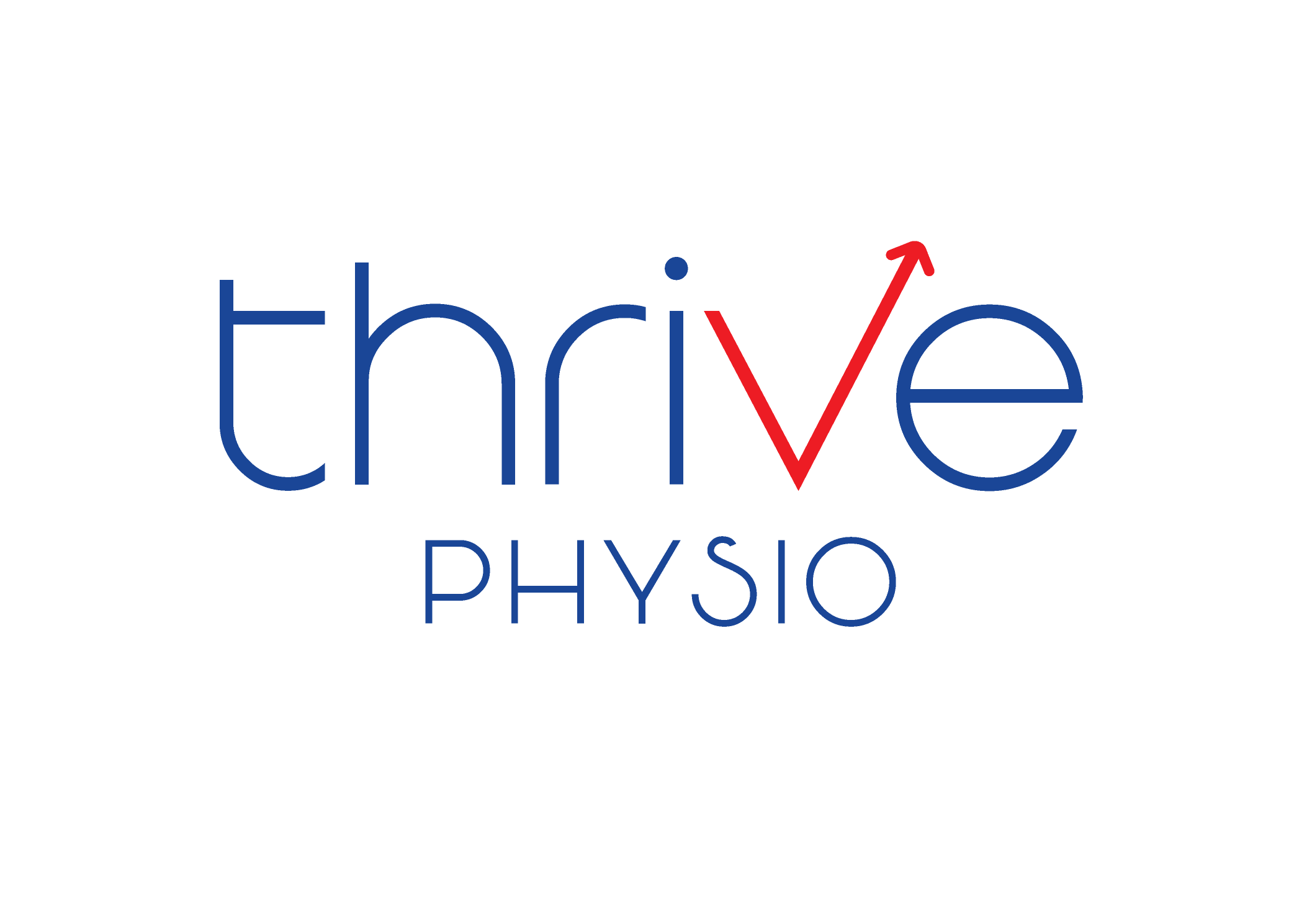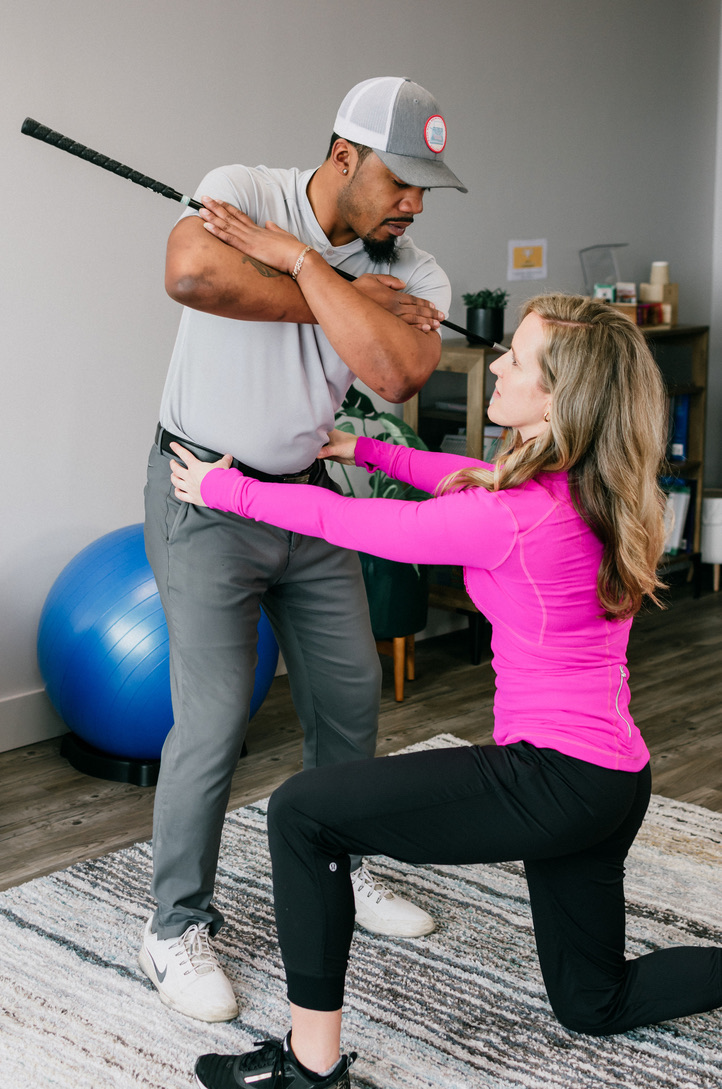What a TPI Assessment Can Reveal About Your Swing
More Than Just a Swing Issue
You’ve worked on your swing. Maybe you’ve had lessons, upgraded your equipment, or spent hours at the range. You’ve tried integrating your instructor’s recommendations but it feels like you’re banging your head against a wall. You’ve even bought a new pair of shoes! But what if the real issue holding you back isn’t your equipment or swing technique at all?
What if it’s your body?
A Titleist Performance Institute (TPI) Assessment is designed to bridge the gap between your body’s movement capabilities and your golf swing’s efficiency. It can uncover hidden limitations that no amount of lessons or new clubs will fix — because when your body can’t move the way your swing demands, compensations are inevitable.
What Is a TPI Assessment?
A TPI assessment is a comprehensive movement screen that evaluates how your body’s mobility, stability and balance relate to your golf swing. The Titleist Performance Institute assessment was developed by the leaders in golf fitness and performance and is designed to help golfers identify physical limitations that may be affecting their game — and their injury risk.
Unlike a swing analysis that critiques technique, a TPI assessment focuses on how well your body can physically perform the movements required for an efficient, powerful, and pain-free swing. It’s not about your swing style; it’s about what your body is capable of doing.
One thing I love about the TPI assessment is that it does not take a one size fits all approach. The beauty of the TPI assessment is that we can identify what your body does really well and what comes naturally. We can also identify what is harder for your body to do- particular weaknesses or areas of stiffness. That way, instead of forcing a particular swing on a body that isn’t receptive to that, we can identify the best swing approach for your body. As your physical therapist, I won’t touch your swing itself. But we can communicate about results of the assessment with your coach so we’re all working together to help you swing your best with lowest risk of injury.
Why Your Swing Problems Might Be Body Problems
When golfers struggle with inconsistency, loss of distance, or even chronic pain, they often assume it’s a technique flaw. In reality, it’s often a movement problem.
Common physical limitations we see in recreational and even competitive golfers include:
- Limited thoracic spine rotation…aka stiff upper back!
- Decreased internal rotation of your hips…aka tight hips!
- Core instability and poor movement sequencing
- Less than optimal balance and single-leg stability
These physical deficits can show up in your swing as:
- Early extension
- Sway or slide
- Loss of posture
- Inconsistent ball striking
- Shoulder or low back pain
If your body can’t rotate, stabilize, or transfer force efficiently, your swing mechanics — no matter how polished — will suffer.
What a TPI Assessment Actually Looks At
During a TPI assessment, you’ll move through a 16-part screen designed to test:
- Mobility: Are your hips, shoulders, and spine moving through a full range of motion? And can you move fluidly through your available range of motion?
- Stability: Can your body control that range of motion without compensation?
- Balance: Can you stabilize and transfer weight effectively during dynamic movement?
- Sequencing Awareness: Are you able to coordinate movement through your kinetic chain — from ground to club head?
You might be asked to perform:
- Thoracic and hip rotation measures
- Single-leg balance test
- Pelvic tilt controls in golf posture
- Shoulder mobility checks
Each screen paints a picture of how your body impacts your swing — and where targeted improvement could make a big difference.
What a TPI Assessment Can Reveal About You
A TPI screen provides a personalized “map” of your body’s movement abilities and limitations.
For example:
- Struggling with early extension? You might lack hip internal rotation.
- Losing posture in your backswing? You could have restricted thoracic spine mobility.
- Fighting consistency? Core stability or decreased balance might be to blame.
Instead of guessing, you get specific insights. We get to connect your physical deficits to the exact swing faults you’re experiencing. It’s actionable, empowering information that makes your practice and training far more effective.
We know we’re all short on time. It is one of our most valuable resources. So if you’re headed to the gym or taking a yoga class or doing any kind of fitness to support your golf game, it would be really helpful to know what areas you need to focus on. Being intentional with your time off the course will maximize your enjoyment and proficiency on the course.
How TPI Results Translate Into Better Golf
A TPI assessment doesn’t just diagnose problems; it provides a pathway for improvement. We don’t hand the results to you and say “good luck!” We create a plan together to work on your greatest areas of need so that when you go to your next lesson or play your next round your body has more physical ability to do what you are asking it to do.
By addressing the physical issues revealed during the screen, you can:
- Increase distance and power
- Improve ball striking consistency
- Protect yourself from overuse injuries
- Get more out of your golf lessons
- Play more rounds with less fatigue and soreness
You can’t fix what you can’t see. A TPI assessment makes sure you’re working on the right things for your unique body.
What Happens After a TPI Assessment?
Once your screen is complete, you’ll receive a clear breakdown of your results and a personalized movement plan.
This often includes:
- Customized mobility drills
- Targeted stability exercises
- Core sequencing and breathing work
- Golf-specific movement integration
Whether you’re building a daily warm-up, a longer-term training plan, or supplementing your lessons, your program is based on your body — not a one-size-fits-all model. It is also based on your schedule and life. We can create a fantastic plan for you, but if you don’t know how to fit it on your calendar, it doesn’t matter! It has to work in your world.
Who Should Get a TPI Assessment?
TPI assessments are valuable for:
- Recreational golfers who want more distance and consistency
- Golfers dealing with nagging stiffness, soreness, or pain
- Players returning after injury
- Golfers serious about playing for decades without wearing out their bodies
If you’ve ever felt frustrated that your swing “should” be better based on lessons or practice — a TPI screen might reveal the missing piece.
Final Thoughts: What Your Body Might Be Trying to Tell You
Your swing can only be as good as your body allows. Without adequate mobility, stability, and sequencing, even the best lessons and practice sessions can only go so far.
A TPI assessment empowers you to train smarter, move better, and play longer — turning potential frustration into lasting performance.
Ready to find out what’s really holding back your game? Book your TPI assessment today and take the first step toward a more powerful, consistent, and pain-free golf swing.



